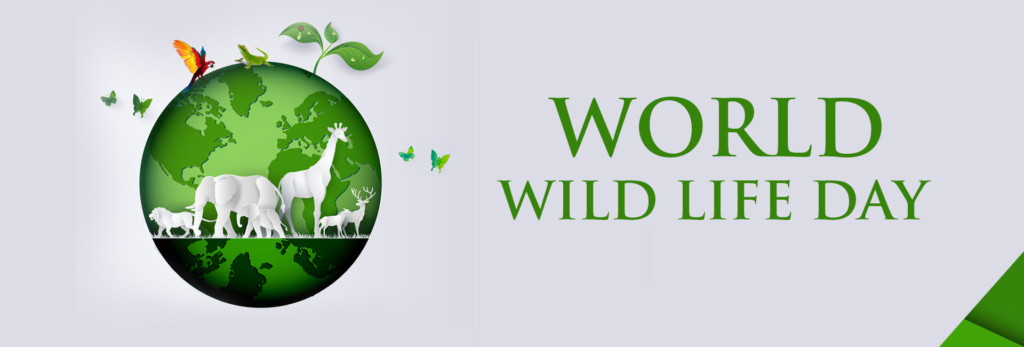By: Professor Edward Wiafe Debrah, Environmentalist and Pro-Vice-Chancellor of the University of Environment and Sustainable Development (UESD)
Introduction
On March 3 every year, World Wildlife Day is marked, an occasion to reflect on the importance of flora and fauna to the health of our planet and the well-being of our communities. The 2025 theme, “Wildlife Conservation Finance: Investing in People and Planet,” challenges all nations, including Ghana, to re-evaluate how we fund the preservation of our unique biodiversity. This theme could not be timelier for Ghana, a country endowed with rich and diverse wildlife that is now facing unprecedented threats from habitat loss, poaching, climate change, and underfunding.
Ghana is home to remarkable wildlife treasures, including elephants, leopards, pangolins, and over 700 species of birds. These species reside in critical ecosystems like the Mole National Park, Kakum National Park, Bia Conservation Area, and Ankasa Conservation Area. Yet, this biodiversity is under siege. Rapid urbanization, illegal logging, mining, agricultural encroachment, and weak enforcement of environmental regulations have led to habitat degradation and species decline. The illegal wildlife trade further compounds the crisis, with species like the pangolin hunted to near extinction.
Wildlife conservation is not merely an environmental issue; it is a socio-economic imperative. Healthy ecosystems contribute to water purification, climate regulation, and food security. For communities living around protected areas, wildlife tourism presents a major source of income.
Yet, Ghana’s conservation financing remains heavily donor-dependent and insufficient to address growing threats. Without innovative and sustained financial flows, efforts to conserve biodiversity and support community livelihoods will falter. It is imperative to recognize conservation as a long-term investment in the health, culture, and economy of the nation.
Currently, the Ghana Wildlife Division of Forestry Commission struggles with limited budgetary allocations. Many protected areas are under-resourced, lacking essential infrastructure, staff, and community engagement programs. Fragmented funding, short-term donor projects, and bureaucratic bottlenecks impede progress. Furthermore, communities who live with wildlife often receive minimal economic benefits, weakening local support for conservation initiatives.
A Call for Innovative and Sustainable Financing
To reverse these trends, Ghana must explore and adopt innovative financing mechanisms for wildlife conservation. Some of these include: 1. Payment for Ecosystem Services (PES): Encourage schemes where beneficiaries of ecosystem services pay landholders to manage ecosystems sustainably. 2. Conservation Trust Funds: Expand funding through independent trusts that pool resources from international donors, NGOs, and government. 3. Green Bonds and Impact Investing: Mobilize private capital through bonds and investment portfolios targeting conservation outcomes. 4. Tourism Levies: Implement modest fees on tourism to fund conservation and community development. 5. Carbon Credits: Protect Forest habitats that sequester carbon and tap into global carbon markets.
Public-Private Partnerships: The Path Forward
The private sector has a crucial role to play- Ecotourism operators, agricultural companies, and extractive industries must be brought to the table. Through Corporate Social Responsibility (CSR) initiatives, they can fund conservation education, wildlife corridors, and community-based monitoring. Ghana’s financial institutions can also integrate environmental risk assessments into lending criteria and support green entrepreneurship among youth and women living around conservation areas.
Government’s Role in Enabling Wildlife Investment
Leadership is essential. Government must increase budgetary allocation to the Forestry Commission and prioritize biodiversity in national development plans. Tax incentives should be provided to companies investing in conservation, while laws protecting wildlife must be strictly enforced. Moreover, parliament should pass legislation enabling conservation finance tools, and district assemblies must be empowered to support local conservation initiatives. Education and awareness campaigns should be intensified, especially among the youth.
A Shared Responsibility
On this World Wildlife Day, let us acknowledge that the survival of Ghana’s wildlife is a shared responsibility. Investing in conservation is investing in our people and our planet.
By unlocking new and sustainable financial mechanisms, we can ensure that future generations inherit a nation rich in natural heritage. Let this be the moment when Ghana chooses to lead, to innovate, and to protect what is irreplaceable. Together, we can make conservation not just a duty, but a legacy.

